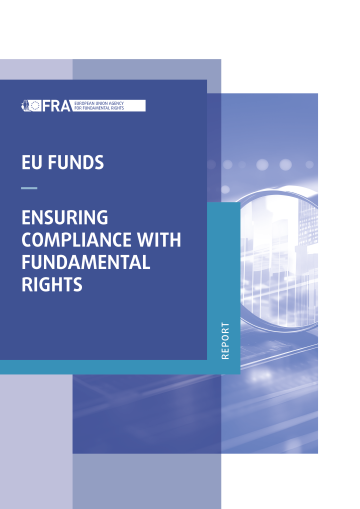Help us make the FRA website better for you!
Take part in a one-to-one session and help us improve the FRA website. It will take about 30 minutes of your time.
This report highlights how mainstreaming the Charter and the CPRD in the implementation of funds governed by the CPR could be improved through involving independent fundamental rights bodies and civil society as partners in the funding process. The report contains suggestions for Member States and their authorities and practical actions for independent fundamental rights bodies.
The enabling conditions contained in the CPR 21–27 may help to prevent operations that are not in full compliance with the Charter and the CRPD from being funded in the first place. This requires Member States to take measures promised in their Charter and CRPD arrangements. Measures include improved fundamental rights training, raising the awareness of all key players in the cycle and ensuring the availability of practical tools to check Charter and CRPD compliance. Action is particularly required at local and regional levels.
There are three main findings related to participation, capacity and resources, and the complaints mechanism.
First, to make better use of the expertise, data and findings of independent fundamental rights bodies and CSOs specialising in fundamental rights, their involvement needs to be greater and more meaningful, including at the initial stages of the funding cycle. Although many of these actors were involved in the previous programming period, greater efforts are needed to ensure that their participation is encouraged, meaningful and facilitated.
Second, it is important that all actors involved, including independent fundamental rights bodies and specialised fundamental rights CSOs, are provided with the necessary extra human, financial and technical resources for this new role.
Third, lessons need to be learned from evaluations and complaints procedures to ensure that the enabling conditions on the Charter and the CRPD make a real difference in the activities and operations that the EU is funding. Member States need to ensure that their complaints procedures are sufficiently effective to identify any violations that occur and deal with them effectively.
FRA stands ready to assist the Commission, Member States and independent fundamental rights bodies in line with the findings of this report.
